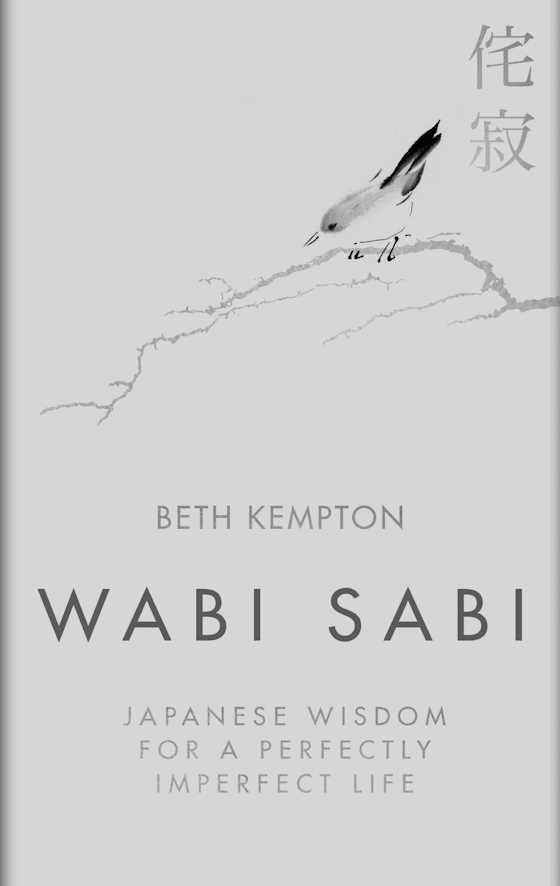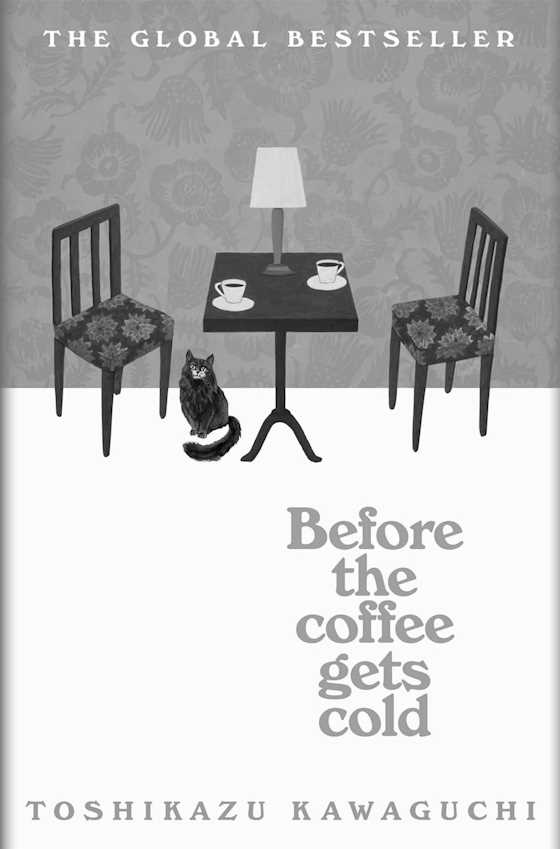

 I really enjoyed Andrew Juniper’s book, Wabi Sabi: The Japanese Art of Impermanence so i thought i’d may as well give Beth’s book a read as well.
I really enjoyed Andrew Juniper’s book, Wabi Sabi: The Japanese Art of Impermanence so i thought i’d may as well give Beth’s book a read as well.
However, unlike Andrew’s book, which i seemed to remember focussed more on the actual aesthetics and the Zen side of Wabi Sabi, with Beth’s book we look deeper into the lifestyle and world view of this wonderful concept.
In reading this book you soon become aware that Beth really has done a lot of homework, lifework, career work and academic work on Japan, and she does a wonderful job of bringing another take on the concept of Wabi Sabi to us non-Japanese readers who are always eager to learn more.
When it all boils down to it, it’s essentially a self help book coming from a really interesting angle. There’s plenty of food for thought in here for anyone looking to make their life even a little bit better tomorrow than it was yesterday. I’m fairly certain that everyone could find at least one thing in here to help improve their own lives in a really good way.

 A man dies who isn’t who he claimed to be. Left behind is a wife, daughter and step son of the imposter, and also an ex-girlfriend and the family of the man who he claimed to be.
A man dies who isn’t who he claimed to be. Left behind is a wife, daughter and step son of the imposter, and also an ex-girlfriend and the family of the man who he claimed to be.
In steps Kido to figure it all out for everyone, a lawyer whose own life is a bit on the rocks. Kido becomes obsessed tracking down the real Daisuké and figuring out who the imposter really was and why he would do such a thing. And while the tracking goes on through the book Kido begins to question his own life and failing marriage.
In Kido’s searching for the real Daisuké and the imposter’s true identity we are taken on a journey about life itself: who are we really if we can just jump into someone else’s past and assume the rest of their life as our own?

 Somewhere in Tokyo there’s a tiny basement cafe with no windows, three clocks telling different times, Mocha coffee, and has a special seat with a ghost that sits in it reading a book while drinking said coffee. Once a day the ghost needs to go to the toilet and while she’s away from the seat anyone who sits in it can be served a coffee and travel back in time: but there are rules.
Somewhere in Tokyo there’s a tiny basement cafe with no windows, three clocks telling different times, Mocha coffee, and has a special seat with a ghost that sits in it reading a book while drinking said coffee. Once a day the ghost needs to go to the toilet and while she’s away from the seat anyone who sits in it can be served a coffee and travel back in time: but there are rules.
Rule 1: nothing you do in the past will ever change the present.
Rule 2: you cannot leave the seat.
Rule 3: you can only meet people who were in the cafe at the time you go back to.
Rule 4: you only get to use the seat once, no second chances.
Rule 5: you must finish the coffee before it gets cold.
If you don’t drink the coffee before it gets cold you become a ghost. It doesn’t say whether you replace the existing ghost or if that’s how the existing ghost came to be, just best not let the coffee get cold.
The book is divided into 4 chapters, each with it’s own time travel escapade. The character list is quite small as it only involves the staff and customers of the cafe — which is a very small cafe — this gives us a much more intimate relationship with each of them and their problems.
As the book builds so does the emotional level of each journey, getting deeper and deeper until the very last journey which i found to be quite a damper of ones eyeballs.
The main point of these stories seems to be that if you could go through time to meet someone but meeting them wouldn’t change a thing in the present what exactly would be the point? This is where most temporal sci-fi falls flat on its face because we always get to the paradox of you wouldn’t have gone back in time if you changed the reason for going back in the first place: this book doesn’t make those temporal mistakes.
All in all, very enjoyable and emotionally moving.
My only gripe: why’s there a cat on the cover when there isn’t a cat in the book?
And the journeys don’t end in this book, there’s a sequel, Tales from the Cafe, which has another 4 characters and their respective journeys in time: maybe the cat gets a mention in this. I’ll be sure to write a review when i get around to reading it.

 In direct contrast to The Wisdom of Tea, in which we are taken on a 25 year journey of a Tea practitioner from their very first lesson, in The Book of Tea we are given the history of Tea itself and its associations through the ages with Eastern religions and philosophy.
In direct contrast to The Wisdom of Tea, in which we are taken on a 25 year journey of a Tea practitioner from their very first lesson, in The Book of Tea we are given the history of Tea itself and its associations through the ages with Eastern religions and philosophy.
As such, this book is wonderful and it makes one realise that there is so much more to Tea than simply throwing some tea leaves in a pot. There are some great passages in this book where Kakuzo has some wonderful rants about western culture which are a delight to read. One can really get a vision of just how coarse the Devon Cream Tea in a sea side cafe — not forgetting morning tea in mother’s finest china with a biscuit — is when compared to Japanese Tea in a traditional tea hut, even though the English will proclaim these two tea ceremonies of theirs as the height of culture.
A must read for all who enjoy reading about Japan and its culture, and anyone who enjoys a cup of tea, however you may take it. Written over 100 years ago and is as relevant today as it was when it was written.
